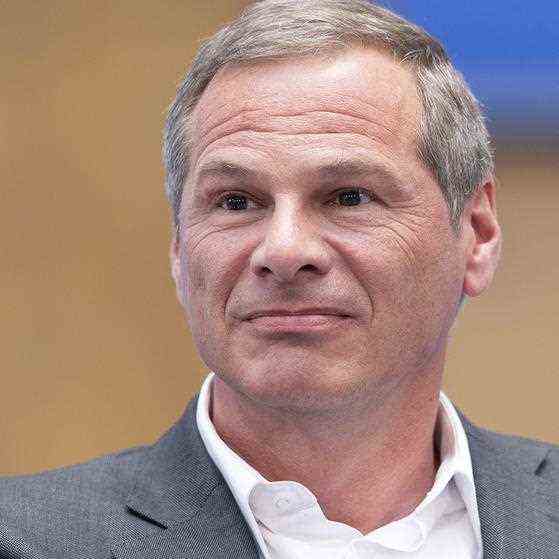Exclusive
Status: October 27, 2021 4:00 p.m.
The dictator of Belarus uses refugees as leverage. As early as the spring, German security authorities warned against such a scenario in an analysis.
They are picked up in cars, cooped up in trucks. Or they try to walk through the forests to Germany: refugees from the Middle East, Central Asia and Africa. The number of apprehensions has also been increasing in Germany for months. Many of the people came to Europe by plane – via the Minsk airport.
The Belarusian dictator Alexander Lukashenko is said to be responsible for the new refugee crisis in Eastern Europe. Apparently as a reaction to the EU sanctions, according to the security authorities, his regime is allowing refugees to enter Belarus directly from their countries of origin. And then transports them to the EU’s external border.
BMI warned of the scenario
The current situation is by no means surprising. As early as the spring, the Federal Ministry of the Interior issued a detailed warning of such a scenario in an analysis paper. The topic report “Scenarios for migration as a starting point for hybrid threats” (VS-only for official use) comes from April and is WDR, NDR and “Süddeutscher Zeitung”.
The 19-page paper was created by the Strategy, Analysis and Resilience Center (SAR), which was founded last year and which includes employees from the Ministry of the Interior, the Foreign Office and the Federal Ministry of Defense. The analysis also incorporated findings and assessments from security authorities such as the Federal Office for the Protection of the Constitution (BfV) and the Federal Police. The aim of the SAR development staff should be to create a sensitivity for “illegitimate foreign influence” within the government.
According to the paper, certain states would abuse the issue of migration for their political purposes and exploit it as a hybrid threat. The goal is the “political incitement of society”, and thereby to promote the “division of society”.
Manipulated discourse about migration
To this end, these states endeavored to “control migration flows in a targeted manner”; they also use “disinformation and spread misleading narratives about migrants” and manipulate “the social discourse on migration” by “supporting political protests”.
Migration is sometimes used by such states as a “bargaining chip for negotiations”. In order to increase the pressure on a destination country like Germany, “migration flows are directed to a specific section of the border with the EU” and campaigns in social media are used to try to mobilize migrants to “cross the border on a massive scale”.
In the security circles, it is pointed out that such situations have occurred in the past and that they therefore have some experience with the actions of certain countries such as Russia or Turkey.
For example, in order to increase the pressure on the EU, the Turkish authorities apparently deliberately did not prevent the casting off of refugee boats in the direction of Greece. A few years ago the number of migrants from Chechnya in the EU increased sharply. At that time, rumors were purposefully spread in the Caucasus that Germany would take in thousands of people, in some cases even pay welcome money and provide apartments.
“Very rare phenomenon”
The abuse of migrants as a hybrid threat is still a “very rare phenomenon”, write the experts in the analysis paper from April. However, it will probably reappear in the future, according to the prognosis, because migration will continue due to various crises and there is a risk that “the topic could have an even more polarizing effect on society than before.”
The report recommends improving the “early detection of hybrid situations in the context of migration”, including monitoring activities on social media. Also within the federal government, the “awareness of hybrid approaches” should be strengthened, so that some situations do not occur by chance, but are deliberately brought about by political actors.
Coordinated action against disinformation
It is also recommended that the government develop a “common narrative on the subject of migration” across departments and provide “proactively fact-based information”. The public should be further sensitized and informed in order to counteract disinformation campaigns. Targeted “debunking” of disinformation, that is, public naming of such campaigns, could also be undertaken. However, this has to be done quickly to be effective. For this a “good cooperation between politics, security authorities and operators of social networks” is necessary.
However, the experts on hybrid threat write that it is also advisable to keep in touch with the states that are responsible for the instrumentalization of refugees. Under certain circumstances, an “open dialogue behind closed doors” would make sense.
“The European Council will not accept any attempt by third countries to instrumentalize migrants for political purposes,” said a final declaration at the EU summit in Brussels last week. “He condemns the recent hybrid attacks on the EU’s external borders and will respond accordingly.” They will continue to oppose these attempts at destabilization and reserve “restrictive measures” against the regime in Minsk.


